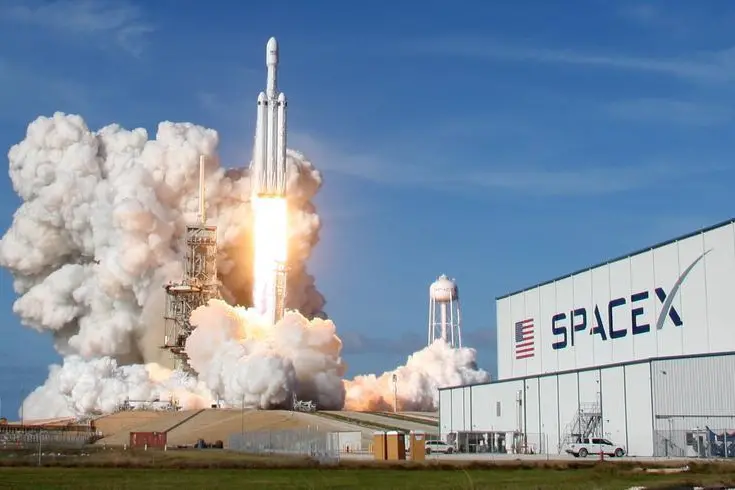PHOTO
NEW YORK - A satellite race has begun with SpaceX, Amazon and a slew of other companies competing to set up global broadband networks. Elon Musk’s firm hopes to start launching satellites as early as May. Jeff Bezos also eyes the prize, and his company has deeper pockets. Yet regulatory and technological glitches are likely, and demand uncertain. Losses could be out of this world.
The dream of a worldwide broadband network has tempted telecommunications visionaries for decades. In theory it could extend service to rural areas without fiber connections and undercut existing operators on price. Morgan Stanley estimated last year that satellite broadband could be worth nearly $800 billion in 30 years. Yet Teledesic had similar ambitions and a slew of big financial backers in the 1990s, only to go bust.
Today’s space race smacks of similar speculative excess. SpaceX has received permission to send up over 11,000 satellites. Rival Amazon is probably at least a year behind, but hopes to put thousands into orbit as well. And OneWeb, Telesat, LeoSat and other firms plan to launch hundreds of satellites too. To put this in context, there were around 2,000 operating satellites in orbit at the end of 2018, according to the Union of Concerned Scientists.
These companies have some things in their favor. Satellites are far cheaper and more capable today than a generation ago. And the price to put something in orbit has been cut, thanks to increased competition from the likes of SpaceX. That’s one reason the number of satellites in orbit has effectively doubled since 2011.
To succeed, however, this new wave of space pioneers must master daunting technical difficulties. They plan to employ satellites in low earth orbits to ensure a quick signal and therefore they constantly move around the sky. That means having to hand off connections seamlessly, and a limited lifespan for satellites as they re-enter the atmosphere and break up. Moreover, it may be hard to compete with existing terrestrial operators, which already have customers and networks, and can fix problems with trucks rather than rockets. One winner, if that, will probably take most of the satellite market as the returns to scale are potentially tremendous.
That may explain why investors appear to be cooling on space. SpaceX tried to raise money twice this year from investors, and both times settled for much less than it sought. This race is not guaranteed to go to the fleetest, or even the one with the deepest pockets.
On Twitter https://twitter.com/rob_cyran
CONTEXT NEWS
- SpaceX has scheduled the launch of the first batch of satellites for a worldwide broadband network as early as May. It is seeking Federal Communications Commission approval to begin operations after seeking modifications to its existing authorization, such as relocating over 1,500 satellites at an altitude of 550 km instead of 1,550 km.
- In November, the FCC granted Elon Musk’s space company approval to operate a constellation of more than 7,000 satellites in very low earth orbit, in addition to the 4,425 satellites it had previously authorized. Both licenses state the network must be fully deployed within nine years of issuance of the license.
- According to securities filings, SpaceX offered to sell $500 million of equity in January but ended up selling $273 million. In April, it offered to sell $400 million, but sold $44 million.
- For previous columns by the author, Reuters customers can click on CYRAN/
- SIGN UP FOR BREAKINGVIEWS EMAIL ALERTS http://bit.ly/BVsubscribe
(The author is a Reuters Breakingviews columnist. The opinions expressed are his own.)
(Editing by Tom Buerkle and Martin Langfield) ((robert.cyran@thomsonreuters.com; Reuters Messaging: robert.cyran.thomsonreuters.com@reuters.net))





















